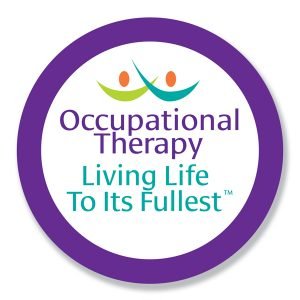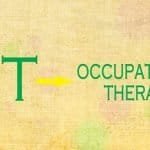By Desiree Gagne, MA, OTR/L

Occupational Therapy
April is Occupational Therapy Month and although the profession has been around for a long time, many individuals, unfortunately, do not know the true benefits of Occupational Therapy (OT). Most individuals learn of their significance when they need an Occupational Therapist to help them, family members, or friends.
The History of Occupational Therapy
It is believed Occupational Therapy was used back in 100 BCE for the treatment of emotional or mental disorders. Eleanor Clark Slagle, also known as the “mother of Occupational Therapy” began directing the department of occupational therapy in 1912 at Johns Hopkins University in Baltimore, MD. She opened the first professional school for occupational therapy. Dr. William Rush Dunton Jr., a psychiatrist and educator, is known as the “father of OT.” Witnessing the healing potential of OT, he published a manual in 1915 for nurses on how OT should be utilized, which included quilt making.
In 1917, Occupational Therapy emerged as a profession in the United States of America with the establishment of the National Society for Promotion of Occupational Therapy, which is better known today as the American Occupational Therapy Association (AOTA). It was officially named Occupational Therapy in 1920 with the first definition being, “OT may be defined as an activity, mental or physical, definitely prescribed for the distinct purpose of contributing to and hastening recovery from disease or injury.” (Dr. H. A. Patterson)
During World War I, there was a great need for treatment and training of sick and injured soldiers. Arts and crafts were used in the initial stages of recovery, which also helped raise their spirits. This helped society become aware of the benefits of Occupational Therapy. During World War II, OT services continued to grow with military hospitals using OTs more than anywhere else in the country. http://goo.gl/HQpLhn
What is Occupational Therapy?
Occupational therapy is the only profession that helps people across their lifespan to do the things they want and need to do through the therapeutic use of daily activities (occupations). Occupational therapy practitioners enable people of all ages to live life to its fullest by helping them promote health, and prevent—or live better with—injury, illness, or disability. http://goo.gl/xdFWzC
Common occupational therapy interventions include helping children with disabilities to participate fully in school and social situations, helping people recovering from an injury to regain skills, and providing support for older adults experiencing physical and cognitive changes. Occupational therapy services typically include:
- an individualized evaluation, during which the client/family and occupational therapist determine the person’s goals,
- customized intervention to improve the person’s ability to perform daily activities and reach the goals, and
- an outcomes evaluation to ensure that the goals are being met and/or make changes to the intervention plan.
Where Do I find an Occupational Therapist?
Occupational Therapists can work in a variety of settings including hospitals, nursing homes, schools, universities, vocational rehabilitation, home care, private healthcare, outpatient clinics, pediatrics, healthcare management, and mental health. Occupational therapy practitioners have a holistic perspective, in which the focus is on adapting the environment and/or task to fit the person. OTs help those learn how to take care of themselves and participate in meaningful activities, which are important to them, which can include self-care, working, and driving. It is an evidence-based practice deeply rooted in science. http://goo.gl/FhRFKd
How Much Education Do Occupational Therapists Need?
Educational requirements for occupational therapy is at least a master’s degree, with a degree field in OT from an accredited program. You must also complete the necessary fieldwork which gives you hands-on experience under the supervision of an experienced practitioner. You will also need to pass the NBCOT exam and hold a state license in order to practice. To maintain licensure, OTs are required to have a certain number of continuing education hours. https://goo.gl/cnK22d
Occupational Therapy is truly a profession that can help individuals return to function and get back to what is important to them. At Rehability, we can help you do just that. Call us at 352-701-0494 or send an email to info@rehabilitygroup.com to learn more about how our OT staff can be of assistance. Occupational Therapists help you live life to the fullest!

https://www.aota.org (The American Occupational Therapy Association, Inc.)




